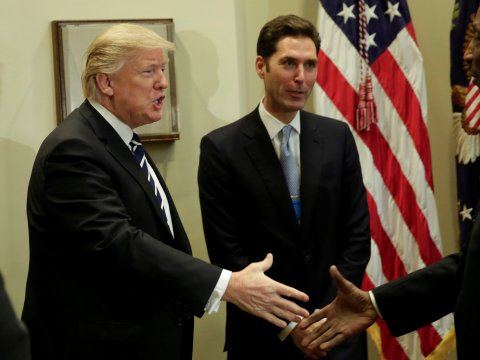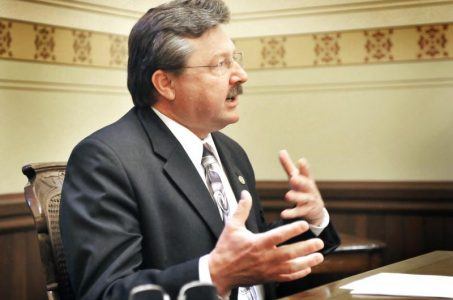New Online Gambling Lobbying Group iDEA Forms in DC, Backed by Amaya and Other Power Brokers
Posted on: June 22, 2017, 03:00h.
Last updated on: June 22, 2017, 03:21h.
An online gambling lobbying group called iDEA (iDevelopment and Economic Association) has set up shop in Washington, DC, just steps from the White House and President Trump’s Oval Office.
The coalition includes many of the most prominent players in internet gambling, including Amaya, parent company to PokerStars, plus GVC Holdings, owner of bwin and partypoker, and UK oddsmakers Paddy Power Betfair.

Golden Nugget, Tropicana, and Resorts, three land-based casinos that are engaged in online casino gaming in New Jersey, are also members of the new iDEA.
With its office located at 1717 Pennsylvania Avenue, less than a block from the White House, iDEA says it will lobby members of Congress and state legislatures to pass measures that promote the expansion of online gaming. The nonprofit group says it will do that by educating politicians on the economic benefits the industry provides.
States are allowed to determine their own online gambling laws due to a 2011 opinion issued by the Department of Justice that ruled the Wire Act applies only to sports betting.
Sheldon Adelson, the billionaire Las Vegas Sands owner and one of Trump’s most prolific campaign donors, has tried using his financial prowess to persuade Congress to restore the Wire Act to its previous interpretation, but so far, without even a hint of success.
Flaunting New Jersey
The lobbying firm is approaching the nation’s capital armed with a recently completed economic report that highlights the fruits of New Jersey’s legalized online gambling sector.
In a paper titled “Economic Impact of New Jersey Online Gaming: Lessons Learned,” principal researchers Alan Meister and Gene Johnson say the state’s iGaming market has generated nearly $1 billion in revenue, produced over 3,300 jobs, and garnered over $124 million in tax revenue.
iDEA doesn’t say much on their website about Nevada and Delaware, the other two states with regulated internet gambling, as the economic benefit in those jurisdictions has been somewhat underwhelming.
But in New Jersey, where gaming revenue from internet casino sites continues to soar, iDEA is more than excited to share the Garden State’s online gambling blueprint.
“New Jersey’s experience provides valuable lessons for other US states considering iGaming legalization,” Jeff Ifrah, a gaming attorney and one of the founding members of iDEA, said in a presser. “The state’s operating environment and regulatory structure … can be implemented by other jurisdictions, bringing much-needed jobs and tax revenue.”
Online Casino Lobbying
Lobbying and Washington go together like America and apple pie. And the $240 billion US casino industry is no stranger to the game of campaigning in DC to influence members of Congress. The industry for decades relied on now-retired Nevada Senator Harry Reid’s presence on Capitol Hill. But with his departure, casino companies are largely on their own.
The American Gaming Association (AGA) has emerged as the chief lobbying group working on behalf of the industry in general. Core members of the trade group include Las Vegas Sands, Wynn Resorts, and MGM.
The AGA’s mission is to “relentlessly protect against harmful and often misinformed public policies,” and to pave “a path forward for growth, innovation, and reinvestment.” The repeal of the federal ban on sports betting has been the association’s primary focus in recent months.
The Poker Players Alliance is another iGaming-focused lobbying firm, which campaigns for the authorization of internet poker.
But iDEA will be first to exclusively embrace only online gambling’s interests and promote them at the political level, which more often than not is where it really counts.
That being said, the site somewhat oddly repeatedly refers to its focus as “online interactive entertainment business,” making it look as though saying “gambling” or “online casinos” will scare too many politicians away.
Related News Articles
Czech Court Rules Online Gambling ISP Blocking is Constitutional
FCC Likely to Repeal Net Neutrality Rules This Week
Most Popular
Tropicana Las Vegas to be Imploded, Tentative Date Set
VEGAS MYTHS BUSTED: Golden Gate is the Oldest Casino in Vegas
Most Commented
-
End of the Line for Las Vegas Monorail
— April 5, 2024 — 90 Comments
















No comments yet